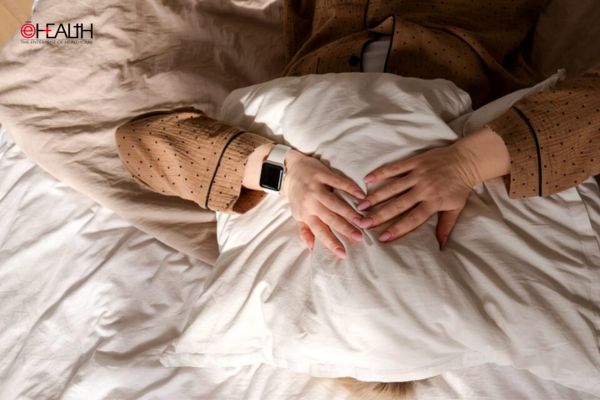
In a pioneering advancement for mental health diagnostics, researchers have developed an AI-driven tool that can predict mood disorder episodes using only sleep-wake data collected from wearable devices like smartwatches. This innovation holds immense promise for providing cost-effective and accessible solutions for diagnosing and managing mental health conditions.
Mood disorders, including bipolar disorder, are characterized by alternating periods of emotional highs and lows, such as mania and depression. These conditions are intricately linked to sleep-wake rhythms, with disruptions in these patterns often triggering mood episodes.

A research team, including experts from the Institute for Basic Science in South Korea, has tapped into this connection by creating a machine learning model that analyzes sleep-wake cycle data to forecast mood episodes. According to the lead researcher, Kim Jae Kyoung, this approach significantly reduces data collection costs and enhances the clinical utility of wearable health technologies.

Study Insights and AI Model Accuracy
The findings, published in the journal npj Digital Medicine, are based on a comprehensive analysis of 429 days of sleep-wake data from 168 individuals diagnosed with mood disorders. The research extracted 36 unique circadian rhythm features, which were used to train machine learning algorithms.

Key results include:

- 80% accuracy in predicting depressive episodes.
- 98% accuracy in predicting manic episodes.
- 95% accuracy in predicting hypomanic episodes.
The study underscores the pivotal role of circadian rhythm disruptions in mood disorders.
- Delayed circadian rhythms (falling asleep and waking up later) are linked to an increased risk of depressive episodes.
- Advanced circadian rhythms (falling asleep and waking up earlier) heighten the risk of manic episodes.
Researchers emphasized that daily shifts in circadian phases were the strongest predictors, with delays linked to depression and advances to mania.
Also Read: Metropolis Healthcare Reveals Landmark Findings for Lung Cancer Awareness Month
Implications for Mental Healthcare
This innovation demonstrates the transformative potential of wearable technology in mental healthcare. By utilizing accessible sleep-wake data, the AI tool eliminates the need for invasive or resource-intensive diagnostic methods, making it a cost-effective option for early diagnosis and treatment planning.
Kim Jae Kyoung noted, “Our study opens new doors for leveraging AI to provide timely and personalized care for mood disorder patients. By focusing on sleep-wake patterns, we are making significant strides in the clinical applicability of wearable devices for mental health.”
As the prevalence of mental health disorders continues to rise globally, tools like this AI model offer hope for more precise, data-driven interventions. The integration of wearable health technology with advanced AI systems could revolutionize how mood disorders are diagnosed and managed, improving outcomes for millions of patients worldwide.
This breakthrough underscores the growing role of AI and wearable technologies in shaping the future of mental healthcare, offering innovative pathways to enhance patient well-being.
Be a part of Elets Collaborative Initiatives. Join Us for Upcoming Events and explore business opportunities. Like us on Facebook , connect with us on LinkedIn and follow us on Twitter , Instagram.
"Exciting news! Elets technomedia is now on WhatsApp Channels Subscribe today by clicking the link and stay updated with the latest insights!" Click here!
















